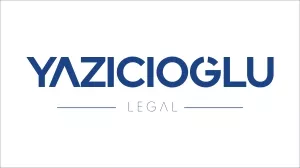As the winds of digital transformation sweep across the globe, intense regulatory efforts are ongoing in both the European Union and other countries to prevent potential devastation that could arise from these rapid changes.
Turkey is closely following this global trend in regulation.
Indeed, several significant developments kept the agenda busy. Please find these developments briefly compiled below.
A. Crypto Assets Have Gained Legal Ground
Although crypto assets have been causing waves of excitement worldwide for a long time, the lack of legal regulations has prevented full trust in these assets. In particular, the legal nature of crypto assets has been the subject of extensive debates among legal circles. The absence of legal regulations meant that the legal nature of crypto assets could not be fully determined, which continued the uncertainty about how to proceed in disputes arising from these assets.
Turkey has taken an important step in defining the legal framework for crypto assets, and the Law on Amendments to the Capital Markets Law (the "Law Amendment") was published in the Official Gazette on July 2, 2024, thereby coming into effect. The full text, in Turkish, can be accessed through this link.
Key highlights from the Law Amendment, which mainly includes comprehensive regulations for crypto asset intermediaries, are as follows:
- New Definitions and Concepts: The Law Amendment introduces definitions for wallet, crypto asset, crypto asset service provider, crypto asset custody service, and platform. Thus, these concepts now have a legal definition.
- Licensing Requirement for Crypto Asset Service Providers: Crypto asset service providers1 must obtain permission from the Capital Markets Board of Turkey (the "CMB") before their establishment and commence operations. In addition, their information systems and technological infrastructure must meet the criteria set by the Scientific and Technological Research Council of Turkey (the "TUBITAK"). Individuals and officials of legal entities operating without permission will be subject to imprisonment and administrative fines.
- Tax Regulation: The Law Amendment does not include a provision for taxing the investors, but platforms2 providing services in Turkey will be required to record 1% of their revenues, excluding interest income from the previous year to the CMB and another 1% to the TUBITAK budget by the end of May of the relevant year.
- Issuance of Capital Market Instruments (Stocks, Bonds, Debentures, etc.) as Crypto Assets: The CMB has the authority to allow the issuance of capital market instruments as crypto assets.
- Relationship between Crypto Asset Service Providers and Their Customers: The crypto assets of customers must be separate from the assets of the crypto asset service providers. Thus, customers' cash and crypto assets cannot be seized for the debts of the crypto asset service providers.
- Obligations of Crypto Asset Platforms Regarding Market Disruptive Actions: Platforms are obligated to identify actions and transactions of a market-disruptive nature, take necessary measures, and report them to the CMB.
- Financial and Information Systems Audits: Financial audits and information systems audits of crypto asset service providers must be conducted by independent audit firms designated by the CMB.
- Foreign Crypto Asset Service Providers: If platforms based abroad (i) establish a workplace in Turkey, (ii) create a website in Turkish, or (iii) engage in promotional and marketing activities regarding crypto asset services, these activities are deemed to be directed to residents in Turkey. If these platforms do not obtain a license from the CMB, they will be considered unauthorized crypto asset service providers.
- Embezzlement Offense: The chairperson and the members of the board of directors, and other members of crypto asset service providers can be considered perpetrators of the embezzlement offense.
- Cryptocurrency ATMs: ATMs that allow customers to convert their crypto assets to cash or another crypto asset must cease operations within three months of the law coming into effect. Otherwise, these ATMs will be shut down by the competent authorities.
- These regulations aim to provide Turkey's crypto asset ecosystem with a safer and more organized environment. The Law Amendment seeks to protect investors and encourage innovation in the sector, making compliance assistance for crypto asset service providers a critical requirement.
B. The Digital Platforms Commission of the Grand National Assembly of Turkey Discussed "Digital Copyright" with Google's Participation
In 2019, the Directive on Copyright in the Digital Single Market (the "Directive") came into effect in the European Union with the aim of protecting publications by media organizations, and reducing the disparity between profits made by internet platforms and content creators, thereby enhancing collaboration between these two groups. Thus, the directive aimed to provide better compensation and control for audio-visual content creators and music producers while also targeting holding online platforms accountable for ensuring the licensing of the content uploaded by users. Following the Directive, Google agreed to pay copyright fees by signing agreements with media organizations in European Union countries.
Following the implementation of these regulations in the European Union, Turkey seems to follow this approach. Indeed, recently, a meeting on "digital copyright" was held in the Digital Platforms Commission of the Grand National Assembly of Turkey (the "Commission"), with the participation of Google Reklamcılık ve Pazarlama Limited Şirketi ("Google Turkey").
During the meeting, the Commission Chair emphasized the importance of protecting the content produced by hard work on one hand and, on the other hand, highlighted how unauthorized use and widespread distribution of this content significantly reduces institutional revenues, particularly from advertising, and creates a serious problem. Furthermore, the Chair stressed the need for copyright protection of news, similar to European standards, and the importance of establishing a ground for agreement with Google and other search engines, thus emphasizing the significance of compensating labor by listening to all stakeholders.
At the meeting, representatives from Google Turkey also stated that they comply with the laws in all countries where they operate and are ready to offer comprehensive solutions in cooperation with news content producers.
It appears that the coming days shall witness new developments in this area. We recommend that relevant stakeholders start preparations now to be ready for such regulations.
C. Turkey's First Artificial Intelligence Law Proposal Has Been Submitted to the Grand National Assembly
Regulating artificial intelligence is one of the most attention-grabbing and debated issues worldwide. Although the question of how artificial intelligence should be regulated has not yet been satisfactorily answered, a step has been taken in the field of artificial intelligence in Turkey, and the Law Proposal on Artificial Intelligence (the "Law Proposal") was presented to the Grand National Assembly of Turkey by a member of parliament on June 25, 2024. Although the Law Proposal has been found unsatisfactory by experts and criticized from various aspects, it retains its significance as the first proposal in this area.
The Law Proposal aims to ensure the safe, ethical, and fair use of artificial intelligence technologies and to create a regulatory framework for its use.
The unofficial English translation of the Law Proposal, made by our firm, is available here.
The content of this article is intended to provide a general guide to the subject matter. Specialist advice should be sought about your specific circumstances.
We operate a free-to-view policy, asking only that you register in order to read all of our content. Please login or register to view the rest of this article.





